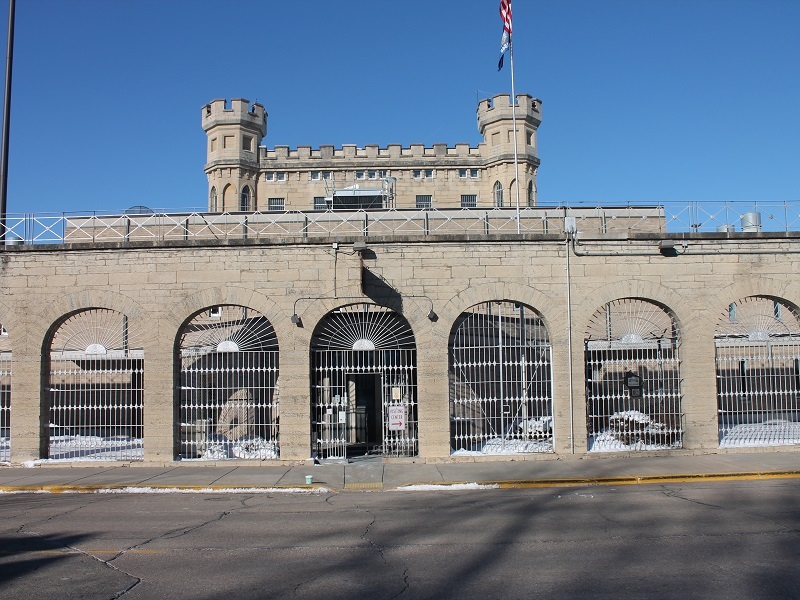Fight Looms Over Tough-on-Crime Bills
Republican bills would jail more people. Democrats resist, align themselves with Trump.
As lawmakers struggle to end the legislative session in the next few weeks, the most divisive issue will be a package of criminal justice bills.
Why? Because the proposed changes touch all the hot buttons:
*Should new tough-on-crime laws put more criminals in already overcrowded state prisons, where 43 percent of all adult males are African-Americans? Or can new, more humane policies reduce prison populations without jeopardizing public safety?
*Should third-offense shoplifters be locked up for six months, and anyone convicted of vehicle theft have to serve 30 days in jail?
*With the number of adult inmates projected to keep growing, partly due to tougher drunk-driving laws, and two outdated Wisconsin prisons built in the 1800s falling apart, will state government build a new prison that could cost more than $300 million? And, if so, build it where?
*Should state government set aside $5 million for grants to police and sheriffs departments to hire more officers to target carjacking, vehicle theft and related crimes?
And one last set of numbers to consider: The state Department of Corrections (DOC) reports that housing an adult male inmate cost taxpayers $32,767 last year; an adult female inmate, $37,743.
The emotional debate is scheduled to start Tuesday in the Assembly, when Republicans bring up their “tougher on crime” agenda.
Assembly Republicans, led by Rep. Joe Sanfelippo, of New Berlin, will argue that major crimes in Wisconsin’s 10 largest cities have increased 24 percent – the opposite of a decrease nationally.
Crime in Wisconsin is “going in the wrong direction,” Sanfelippo told reporters last week. For example, he said, the City of Milwaukee’s last budget cut 60 police officers, so Milwaukee Police Department officers are so busy investigating major crimes they “don’t have time to enforce traffic laws” like carjacking and vehicle theft.
Republicans’ “tougher on crime” bills would also give judges oversight of prosecutors’ decisions on felon-in-possession cases and carjacking and vehicle theft cases. More judicial oversight is needed because of a “breakdown in the criminal justice system in southeast Wisconsin,” added Republican Sen. Dave Craig, also from Waukesha County.
In a preview of Tuesday’s debate, Sanfelippo accused Democrats against the GOP changes of “sticking up for criminals.”
“Republicans are the only ones fighting to protect the safety of families across Wisconsin,” said Sanfelippo. “Even the most liberal Democrat should feel some responsibility toward protecting innocent families who just want a safe neighborhood in which to raise their kids.”
Milwaukee’s Democratic Rep. Evan Goyke’s response: “Republicans never once offered any evidence, example, or peer state that proves the contention that the ‘tougher on crime’ legislation will in fact reduce crime and if so, by how much.”
Race is also part of the controversy, since DOC reports that 43 percent of all adult male prison inmates are African-Americans. Census data from 2010 shows that African-American residents make up 66 percent of Goyke’s district, and 3 percent of Sanfelippo’s district.
“Building a new prison may cost more than $300 million with an ongoing annual cost of anywhere from $20 million to $40 million, depending on the capacity and level of security,” said Sen. Lena Taylor, another Milwaukee Democrat.
“There is a looming crisis in corrections,” Taylor added. “Conservatives, liberals, and states with divided government across the nation have introduced similar proposals to address the challenges in their respective states.”
In an ironic touch, President Donald Trump claimed credit for criminal justice reform that resulted in thousands being released from federal prisons in last week’s State of the Union speech: “Our roaring economy has, for the first time ever, given many former prisoners the ability to get a great job and a fresh start. This second chance at life is made possible because we passed landmark criminal justice reform.”
So, Assembly Democrats will ask their Republican peers, if your President supported changes that reduced the number of prison inmates, why can’t you?
Steven Walters is a senior producer for the nonprofit public affairs channel WisconsinEye. Contact him at stevenscotwalters@gmail.com
If you think stories like this are important, become a member of Urban Milwaukee and help support real, independent journalism. Plus you get some cool added benefits.
The State of Politics
-
A Wisconsin Political Trivia Quiz
 Dec 15th, 2025 by Steven Walters
Dec 15th, 2025 by Steven Walters
-
The Fight Over Wisconsin’s House Districts
 Dec 8th, 2025 by Steven Walters
Dec 8th, 2025 by Steven Walters
-
The Battle Over On-Line Betting
 Nov 24th, 2025 by Steven Walters
Nov 24th, 2025 by Steven Walters






















